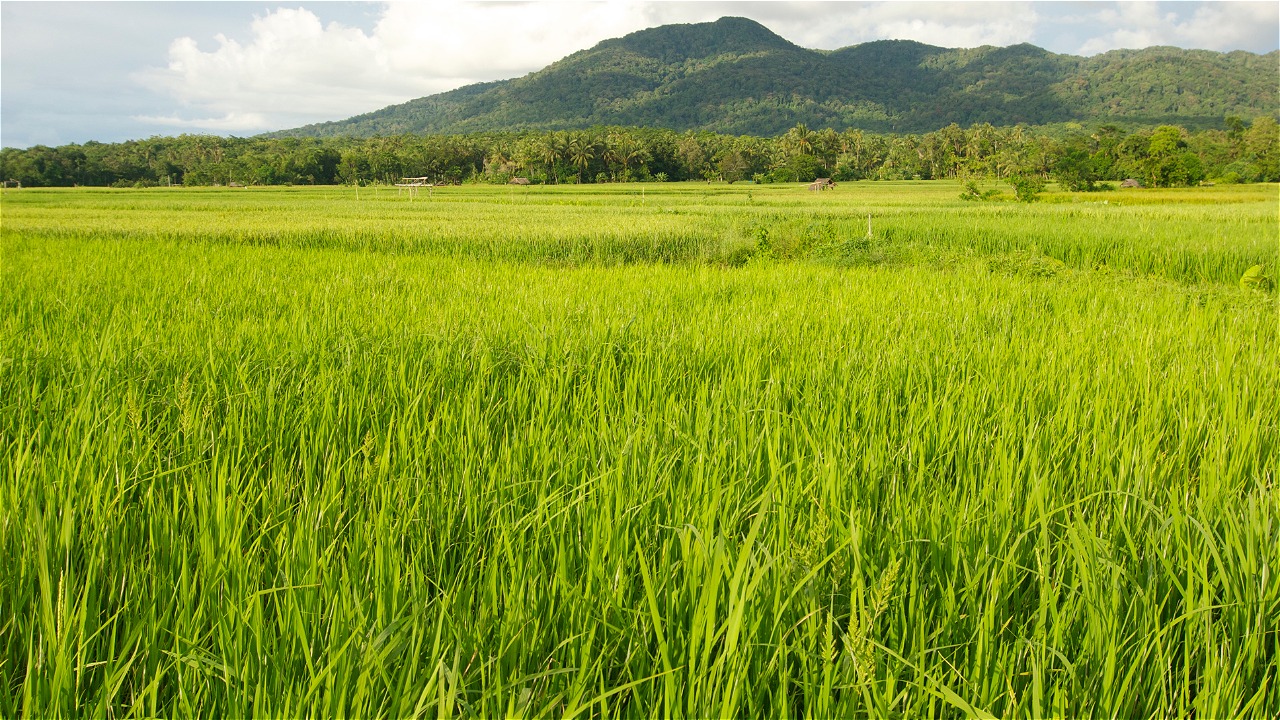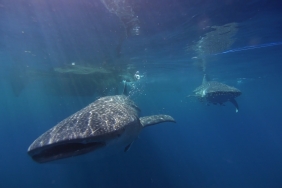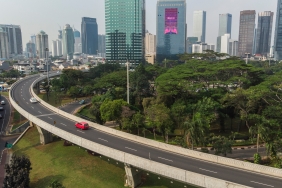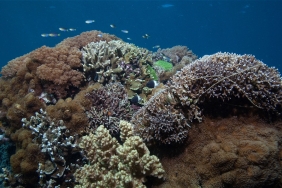BEYOND BASIC NEEDS: HOW OUR FOOD SECURITY PLAN CAN ACHIEVE MORE
The World Wildlife Fund’s (WWF) “Solving the Great Food Puzzle” report, published in September 2024, suggests potential solutions in addressing food sector contributions to 80 percent of biodiversity loss and approximately one third of greenhouse gas emissions, clustered into six food system types for major food producer countries.
According to the report, Indonesia is uniquely positioned to tackle issues in food-related emissions and land use management. Such opportunity comes from Indonesia’s relatively low food-related emissions, the result of the country’s consumption patterns. Indonesians eat less meat and dairy, both of which are linked to high methane emissions. The country also has lower agricultural practices in high-emission sectors, along with public policies that promote emissions reduction.
Despite this strength, Indonesia, a country renowned for its biodiversity and natural resources, faces a pressing challenge: how to ensure food security for its growing population while mitigating environmental degradation. This, however, can still be addressed by adopting a nature-positive approach to food systems, hence securing Indonesia’s food supply while contributing to climate goals.
The report’s findings also align with the National Medium-Term Development Plan, which aims to strengthen economic resilience for high-quality and equitable growth. This target is reflected by the government’s efforts to create a solid foundation for a more prosperous and equitable future for all, as further emphasized under the strategic objectives of the Food Security Plan 2020–2024. The plan is commendable as it holds the potential to drive sustainable development and ensure that all citizens benefit from enhanced food security and economic stability.
Indonesia’s food systems can be more sustainable. Currently, nearly 80 percent of biodiversity loss and a substantial portion of the country’s carbon emissions stem from agriculture. Despite the growth in food production for the growing population, around 33 percent of Indonesians still face food insecurity. The situation presents a difficult balance — supporting the nation while preserving natural ecosystems, many of which are crucial carbon sinks.
This report underscores the need to rethink food production by integrating sustainability at every stage. The report emphasizes that the key lies in transforming food systems to be part of the climate change solution.
Nature-positive agriculture involves farming practices that maintain ecosystems, conserve biodiversity and absorb large amounts of carbon. With its extensive land and rich biodiversity, Indonesia has great potential to lead this change.
Agroforestry, for instance, involves growing trees alongside crops, which can increase soil fertility and sequester carbon while also boosting yields over time. Agroforestry offers a solution by allowing farmers to restore land while growing food, in turn transforming degraded landscapes into carbon sinks.
Furthermore, regenerative agriculture — practices such as reduced tillage, cover cropping and crop rotation — can further enhance soil health and water retention, reducing the need for harmful chemical inputs.
The report also highlights that agroforestry and regenerative agriculture are among the impactful solutions for nations grappling with dual challenges in food security and environmental degradation.
Indonesia’s food production is dominated by smallholders who often face food insecurity themselves and are vulnerable to climate impacts. These farmers are central to achieving food security and environmental sustainability, which inspire the WWF’s initiative in supporting community-based food production that emphasizes healthy diets and diversified options. Community micro, small and medium enterprises (MSMEs) with proper market access can also be promoted to leverage household income.
Many smallholders lack the financial and technical resources to adopt nature-positive practices. Land tenure insecurity and limited market access also hinder their ability to invest in sustainable methods. The report stresses the need for financial incentives, such as sustainable farming practices subsidies, and for government-backed programs offering support in regenerative methods transition.
An intensive approach is also crucial in reinforcing sustainable agricultural practices rooted in the knowledge of indigenous communities. It is expected that this emphasis crosscuts other issues such as malnutrition and stunting, recognition of indigenous territories and local biodiversity loss. This underlines the role of indigenous wisdom in preserving local food and conserving biodiversity.
One of the most promising solutions to ensure food security and environmental sustainability is the development of carbon markets. The “Solving the Great Food Puzzle” report highlights how carbon markets can play a critical role in financing sustainable food systems. Indonesia’s vast forests and peatlands are some of the world’s most effective carbon sinks, and by compensating farmers for practices that sequester carbon—such as agroforestry and regenerative farming—Indonesia can tap into global climate finance, in turn providing a much-needed revenue stream for smallholders.
Another vital aspect of food security is food loss and waste. In Indonesia, approximately 40 percent of food produced is lost or wasted before reaching consumers. The Eastern region has higher rates of malnutrition and food insecurity because of poor infrastructure and logistical barriers. Addressing this issue can improve food availability without expanding agricultural lands which can be done by improving infrastructure, such as storage facilities and transportation systems.
Indonesia’s sustainable transformation of the food system relies on effective natural resource management and ecosystem conservation.
Achieving food security does not have to come at the expense of the environment. By embracing smallholder-led nature-positive agricultural practices and reducing food loss and waste, we can achieve national food security and become a global leader in sustainable food systems.
However, this transformation requires political will, investment and collaboration across sectors to ensure that Indonesia’s food systems not only nourish the population but also restore ecosystems and fight climate change.
By leading this transformation, we can prove that food security and environmental sustainability are not mutually exclusive goals The choices made today will determine whether future generations inherit a thriving, food-secure and climate-resilient Indonesia.
***
The writer is CEO of WWF-Indonesia. The views expressed are personal.
Originally posted on:





